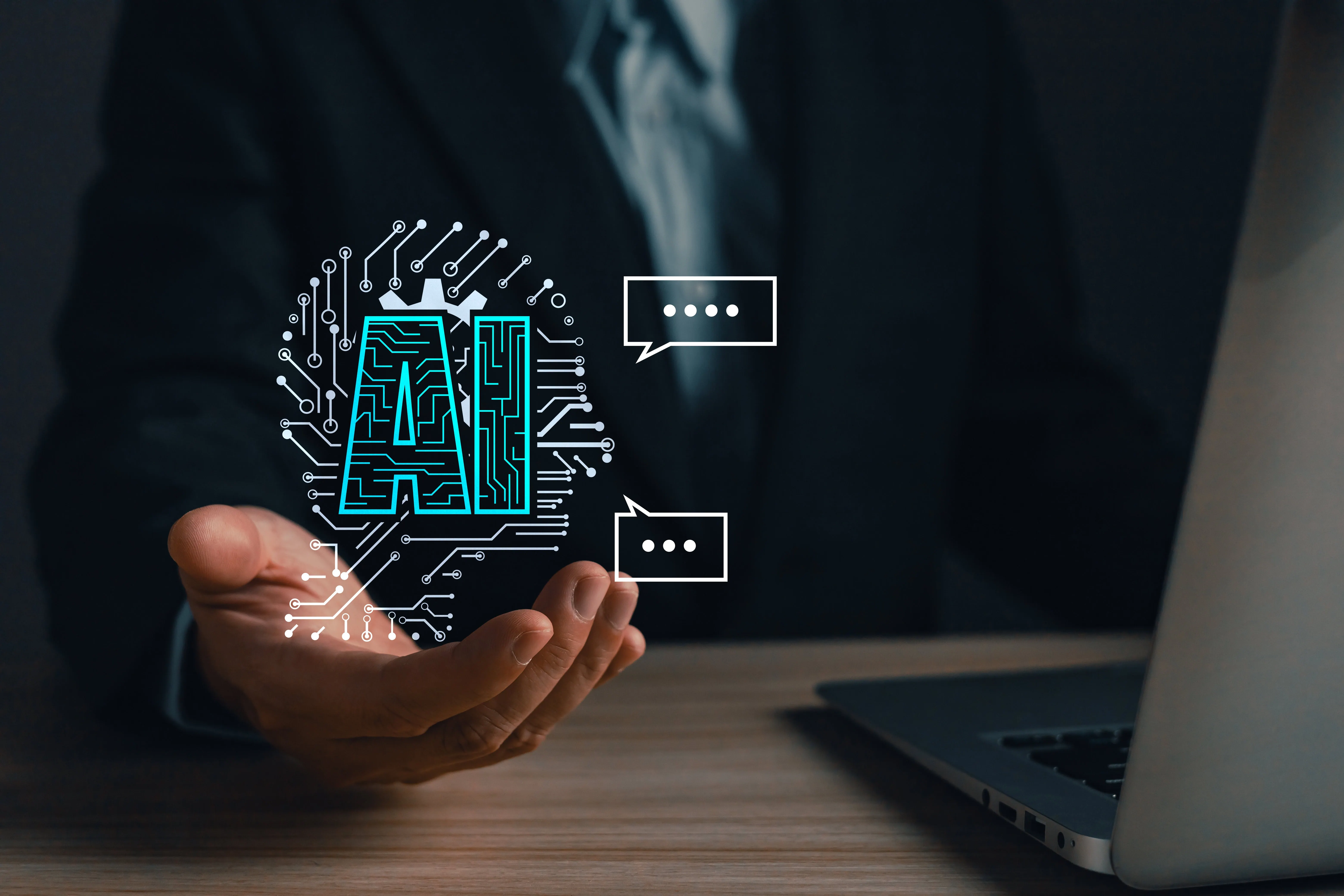Welcome to the age of AI-enhanced job interviews! As technology advances, artificial intelligence is increasingly being integrated into the recruitment process, offering new challenges and opportunities for job seekers. This guide is designed to help you, an entry-level job seeker, understand and prepare for AI-assisted interviews. Whether you are just entering the job market or looking to transition into a more tech-savvy role, mastering how to use AI for an interview can set you apart from other candidates.
In this comprehensive guide, we will cover everything from the basics of AI in interviews to advanced preparation techniques. You’ll learn about the tools and platforms available for practice, gain insights into what employers look for when using AI technologies, and discover how to stand out in both AI-driven and human-assisted stages of the interview process.
Get ready to embrace the future of hiring and make a compelling impression on your potential employers by mastering your AI interview skills!
Understanding AI’s Role in Job Interviews
In today’s digital era, AI technology is revolutionizing how companies conduct job interviews. Using AI in interviews helps streamline the hiring process and can provide unbiased insights into a candidate’s suitability for a role. Here, we explore how AI tools are changing the landscape of recruitment.
AI in Screening and Candidate Selection
AI-driven systems can now screen resumes and applications to identify the most promising candidates. They do this by analyzing large quantities of data and identifying patterns or keywords that align with job requirements. This method reduces the workload on human HR teams and ensures a faster screening process. Learn more about how to prepare for interview questions.
Automated Interview Scheduling
AI tools are increasingly used to automate the scheduling of interviews, matching the availability of candidates and interviewers efficiently. This reduces administrative burdens and helps to speed up the recruitment cycle.
Enhanced Candidate Experience
AI technologies provide candidates with a more engaging and interactive experience. They offer immediate responses and guidance through chatbots, improving communication and maintaining the candidate’s interest in the position.
External Resources
For a deeper understanding of AI’s impact on job interviews, consider visiting resources from reputable educational institutions, such as the Massachusetts Institute of Technology’s insights on AI in Talent Acquisition.
Integrating AI into recruitment streamlines the hiring process and supports fair and efficient decision-making. As AI continues to evolve, its influence on hiring practices is bound to deepen, offering challenges and opportunities for employers and candidates alike.
Preparing for AI-Assisted Interviews
As AI becomes increasingly prevalent in recruitment, candidates must understand how to effectively prepare for AI-assisted interviews. Here are some practical steps and tools you can use to hone your skills and impress an AI interviewer.
Select the Right Tools
Several platforms offer AI-driven interview practice sessions that simulate real-life scenarios. Platforms like HireVue and MyInterview offer customizable practice interviews where you can get instant feedback on your performance. These tools help you familiarize yourself with AI-driven interview formats and receive constructive feedback to refine your approach.
Research AI Integration in Companies
Understanding a company’s use of AI in its hiring process can give you a strategic advantage. Companies may use AI for more than just scheduling; they might assess your facial expressions or tone of voice.
Practice Common AI-Generated Questions
AI interviews often involve a set of standard questions that evaluate skills and compatibility with company values. Consider the following:
- Describe a challenging project and your role in it.
- Discuss your problem-solving methods.
- Explaining how you handle workplace conflict.
Utilize External Guidance
For additional resources and support in preparing for AI-driven interviews, educational websites such as the Society for Human Resource Management provide insights and tips on navigating this new technological advancement in job interviews.
By properly preparing for AI-assisted interviews, candidates can significantly improve their performance, showcasing their best qualities in a format that is increasingly becoming the norm in various industries.
Tools and Platforms for AI Interview Preparation
Preparing for an AI-enhanced interview requires the right set of tools and platforms. These resources offer simulations and exercises designed to help you master AI interviews.
Top AI Interview Preparation Platforms
Utilizing platforms specifically built for AI interview training can give you a competitive edge. Platforms like InterviewIQ and VMock offer scenarios where you can engage with AI algorithms similar to those employers use. This allows for a rounded preparation, aiming to make you comfortable with the technology.
Key Features to Look For
When choosing a platform to prepare for an AI interview, consider the following features:
- Feedback on verbal and non-verbal communication.
- Tailored feedback based on industry-specific questions.
- Compatibility with various job levels and roles.
External Learning Resources
In addition to interactive platforms, several websites and tutorials can help you grasp how to use AI for an interview. Notably, resources from educational leaders such as Stanford University provide in-depth understanding. Visit their guideline on AI employment at Stanford AI Society.
Adopting these tools and platforms prepares you to answer questions correctly and confidently engage with AI technology. This prep is essential as more companies adopt these systems.
Practicing with AI Before the Actual Interview
Once you have selected the appropriate tools and platforms, the next step is to engage in rigorous practice. Practicing AI before your interview can dramatically enhance your readiness and confidence.
Simulated Interview Sessions
Most AI interview preparation platforms include options for simulated interviews. These simulations mimic the real interview experience by asking typical and job-specific questions and analyzing your responses for content and delivery. Practicing with these simulations helps you adjust your answers and improve your communication skills.
Feedback Analysis
Take advantage of the detailed feedback provided by AI tools. They often provide insights into:
- Vocal tone and clarity.
- Gestures and facial expressions.
- Answer structure and content relevance.
Iterative Improvement
AI tools allow repeated practice sessions, enabling you to refine your responses based on prior feedback. This iterative process is essential. It ensures constant improvement and helps you address any recurring issues.
External Educational Resources
Furthermore, explore additional guidance from external educational resources like Harvard University’s Business School, which offers tips on enhancing interview practices with AI.
By practicing intensively with AI and analyzing the feedback provided, you can improve your chances of acing AI-based interviews, turning potential challenges into opportunities to showcase your strengths.
AI’s Impact on Employer Hiring Practices
The use of AI in recruitment is transforming the candidate’s experience and reshaping employer hiring practices. By integrating AI, companies can enhance efficiency and fairness in their hiring processes.
Streamlined Recruitment Process
AI simplifies the initial hiring stages by quickly analyzing large volumes of applications. This capability allows HR teams to focus on engaging with the most promising candidates. Additionally, AI’s role in complex application processes simplifies decision-making.
Enhanced Decision-Making Accuracy
Moreover, AI tools assist in creating a non-biased recruitment environment. Algorithms are designed to evaluate candidates based on skills and experience, minimizing human bias. This leads to more diverse and inclusive workplaces.
Improvements in Candidate Matching
AI systems are adept at matching candidates with roles that suit their expertise and potential. This improves job satisfaction for newly hired employees and optimizes company resources.
External Resources on AI and Ethics
However, as AI becomes more prevalent in hiring practices, ethical considerations must be addressed. Organizations can refer to U.S. Equal Employment Opportunity Commission guidelines for insights into the best practices for maintaining ethics in AI recruitment.
Thus, as companies continue to leverage AI in hiring, they benefit from improved operational efficiencies and a more equitable selection process, aligning them closer to their diversity and inclusion goals.
Benefits of Using AI for Interview Preparation
Using AI for an interview can significantly enhance a candidate’s preparation and performance. Here are some key benefits of integrating AI into your interview prep strategy.
Consistency in Practice
AI provides a consistent interview practice environment. You can repeatedly assess your skills against standardized criteria, ensuring steady progress in your preparation.
Personalized Feedback
AI systems analyze not just what you say but how you say it. This results in detailed, personalized feedback that can pinpoint specific areas for improvement in demeanor or response structure.
Reduced Anxiety
Furthermore, regular practice with AI tools can help reduce interview anxiety. Familiarity with the interview format and types of questions asked builds confidence.
Adaptation to Technological Advancements
Also, practicing with AI tools keeps you in step with technological advancements in hiring. This familiarity can make you more adaptable and versatile in your job search.
External Links to Best Practices
Moreover, for more detailed strategies on preparing effectively with AI, academic websites like Purdue University offer comprehensive resources. See their tips at Purdue University Career Guide.
Thus, by leveraging AI in your interview preparation, you are not just readying yourself for an interview but are also equipping yourself with cutting-edge tools that enhance your employability.
Challenges and Considerations
While the utilization of AI in interview preparation offers numerous benefits, it also presents several challenges and considerations that candidates should be aware of.
Lack of Personal Touch
AI, though efficient, lacks the personal touch that comes from human interaction. If relied on exclusively, this can make adapting to human-led interviews more challenging.
Dependence on Technology
Heavy reliance on technology can lead to difficulties in situations where traditional interview methods are used. It’s important to balance AI practice with human interaction. Explore more on inclusive and supportive opportunities.
Data Privacy Concerns
Also, the use of AI in interviews raises data privacy issues. Candidates should ensure they understand what personal data is collected and how it is used.
Accessibility and Bias
Accessibility issues may arise with AI technologies, potentially disadvantaging individuals unfamiliar with such systems. Additionally, if not properly programmed, AI can perpetuate existing biases within datasets it was trained on.
External Perspectives on AI Fairness
Furthermore, for insights on AI fairness and ethical considerations, reputable resources such as the National Institute of Standards and Technology (NIST) offer perspectives on AI and equity.
Addressing these challenges requires a thoughtful approach to using AI in interview prep, ensuring that while technology serves as a tool for improvement, it does not become a crutch.
How to Respond to AI-Generated Questions
Learning how to use AI for an interview includes understanding how to respond effectively to AI-generated questions. This skill is crucial as it can dramatically influence the outcome of your interview.
Understand the Question Structure
AI-generated questions often follow specific patterns based on the role and industry. Recognizing these patterns helps tailor your responses more effectively.
Focus on Relevant Keywords
Incorporate relevant keywords and phrases that align with the job description into your answers. AI systems scan for these to evaluate the relevance of your responses.
Keep Answers Clear and Concise
AI may not interpret nuances and subtleties like a human interviewer might. Aim for clarity and brevity to ensure your responses are well-understood.
Maintain a Formal Tone
Even though you’re interacting with a machine, maintaining a professional demeanor is essential. This practice will serve you well in human and AI interviews alike.
Practice Makes Perfect
Finally, the more you practice, the better you respond effectively to AI questions. Regular use of AI interview tools will help fine-tune your technique.
Enhancing your ability to deal with AI-generated questions will not only help in the initial AI screening but also prepare you for potential follow-up interviews, whether AI-driven or human-led. This skill is an integral part of mastering how to use AI for an interview.
FAQs
What exactly does AI evaluate during an AI-assisted interview?
AI typically assesses factors such as speech clarity, language use, facial expressions, and even the length and relevance of your responses.
Is it possible to trick AI during an interview?
Trying to deceive AI is not advisable. AI systems are designed to analyze consistency and honesty in responses. Focus on being authentic and well-prepared.
How can I tell if a company uses AI in their hiring process?
Companies usually inform candidates if AI will be part of the interview process. You can also inquire directly from the HR department beforehand.
Do all industries use AI for interviews?
While AI adoption varies by sector, industries such as tech, finance, and healthcare are leading in using AI for recruitment processes.
Can AI determine my suitability for a role better than a human interviewer?
AI can offer a valuable perspective, especially on technical competencies and structured responses, but it lacks the human element of understanding cultural fit and personality nuances.
Are AI-powered interviews considered fair?
AI can help minimize human bias when properly programmed and monitored, potentially leading to fairer interview outcomes. However, the technology must be regularly audited to ensure it remains unbiased.
These FAQs aim to illuminate some common inquiries about the use of AI in interviews, enhancing your understanding and preparation for such processes.
Conclusion
Understanding how to use AI for an interview is becoming increasingly crucial in the modern job market. By embracing AI tools for interview preparation, candidates can significantly enhance their readiness and performance. The key lies in practicing with AI, addressing potential challenges, and leveraging these technologies to your advantage.
Join Diversity Employment
If you want to advance your career with a diversity-focused employer, consider joining Diversity Employment. We provide resources, job listings on our diversity job board, and support to help you navigate the complexities of career advancement in an inclusive environment. We can embrace technology and diversity to foster a more equitable workplace.




